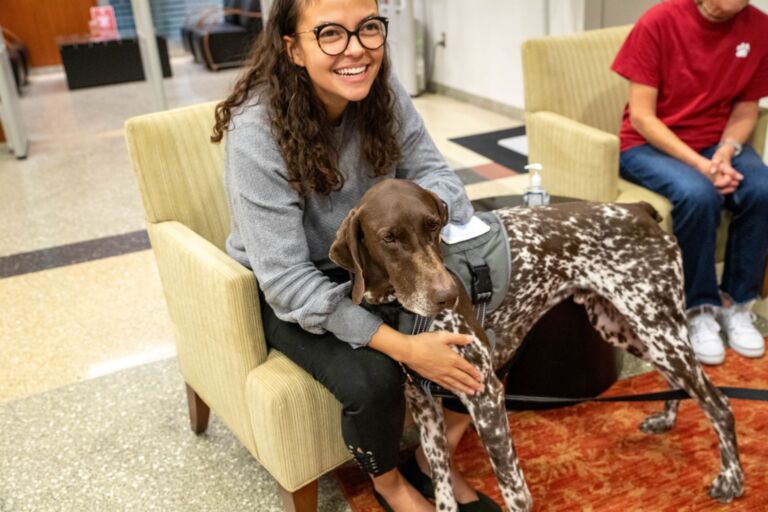Summer school? Ugh, right? Not necessarily. Most law students know summer is no longer a time to rest and goof off, but many also feel they don’t have time for additional courses. However, finding the time could pay unexpected dividends.
Students who have taken the summer-school plunge report the time is well spent, as long as you know what you want from the experience. While some students take classes at their own schools, others venture to different campuses seeking specialized courses that may not be offered during traditional law school semesters.
We profile three students who took summer courses for different reasons and who all say they would do it again.
Legal technology
Meghan Brayton hopes to pursue a career that combines law with technology. The third-year student at Duke University School of Law found the perfect opportunity to bolster her career goals. Marshall-Wythe School of Law at the College of William & Mary offers a summer program on legal and court technology.
“I really liked the emphasis on technology,” said Brayton, who is concurrently earning a J.D. and an M.A. in psychology and neuroscience. “When studying law there is so much that can seem backward looking. Being around a group of people that embrace change and move forward is really refreshing.”
Brayton’s husband is in the military, and she also considered joining, but decided to pursue the subject through law.
“In law school, I’ve done research on drones, military courts-martial and ways neuroscience findings have been utilized to enhance war fighters,” she said. “I’ve branched out to civilian uses for law and neuroscience as well, like … cognitive research applications to jury and litigation consulting.”
Brayton was drawn to William & Mary’s summer program by its esteemed faculty, course offerings and networking opportunities.
“I got to make contacts and build a network where I want to work,” she said. “Professor Fred Lederer (a leader in courtroom and legal technology) had a multi-modal way of teaching. I had a fantastic experience, and the fact that you can take a class with professor Lederer is always
a bonus.”
Brayton has already seen her summer in Virginia tie-in with other aspects of
her education.
“I was in the Expeditionary Legal Complex in Guantanamo as part of a clinic at Duke, and the tour guide said, ‘This courtroom was designed by Fred Lederer of the Center for Legal and Court Technology,’” she said. “It was neat to see it in the context of other things I’d learned about that summer at William & Mary.”
Taking summer classes also helped her lighten her third-year class load, which has opened other doors — including a
possible LL.M.
“Because of the extra credits, if I were to spend a month in Geneva this summer, I could earn the joint LL.M. in comparative and international law, which is a really exciting possibility,” she said.
An environmental summer
Andrew Minikowski is often found backpacking and bird watching, and the activities are more than just hobbies. They are an integral part of the third-year’s education and future career in environmental law.
The 24-year-old is simultaneously pursuing a J.D. at Vermont Law School and a masters in environmental law and policy. He took Vermont Law School’s summer program after his first year.
“Of all my various semesters of schooling throughout the years, my summer here was definitely one of the best educational experiences I’ve ever had,” he said. “I’ve learned the most and had the best rapport with colleagues, professors and
fellow students.”
Minikowski took classes in land conservation and comparative Chinese environmental law, which are just a few of the 35 rotating courses taught by faculty and visiting scholars.
“The courses during the summer are at a totally different level than the courses offered throughout the year,” he said. “They are very narrow topics, so you learn a lot about certain areas of law in great depth, and the professors are experts in their field from different schools.”
While many students spend time interning in the summer, Minikowski opted for classes.
“I was able to gain substantive knowledge in that one summer and didn’t feel like I was missing out by not doing an internship,” he said.
He completed a for-credit internship this past summer, which helped him finish his master’s degree prior to his last year in law school. He’s also the editor-in-chief of the Vermont Journal of Environmental Law and said summer classes made him a better editor.
“When we are editing we have to decide what is topical, and having taken those courses in a lot of developing areas of the law has helped,” he said. “I’ve come to the table with a better understanding of what people are interested in and likely
to read.”
The program is open, meaning you may sit next to practicing attorneys, state and federal agency personnel and international students
in class.
“It was worth it because of the sheer diversity of voices in the classroom,” he said. “Two other people were from my law school and everyone else was from all over the world.”
Crim pro in New York
Marc Vainrib isn’t planning on pursuing a career in criminal law, but he knows it is heavily tested on the bar exam. The second-year law student, who hopes to work at a nonprofit, opted for a summer course in the subject at the City University of New York School of Law to prepare for the exam.
“I was in a setting where I was only taking one class,” he said. “It’s easier to focus on one thing. It wasn’t the same level of stress in the summer as in fall or spring.”
Vainrib also interned at a foreclosure defense firm. Taking just one class two nights a week improved his work-life balance while keeping him sharp.
“It’s not all school or all work,” he said. “Students that didn’t take summer classes had to get back into the swing of things. [Summer classes] keep the law school vibe going at a lower level, so you’re not shocked when you come back in the fall.”
Vainrib said he was also better prepared for the final exam.
“When it came for the final, I didn’t even realize how much I knew because I had focused on one area of the law,” Vainrib said. “I remembered much more than when I had to study for four tests.”
CUNY School of Law’s program is open to any law student who wants to spend a summer in New York taking courses.
“We had a few students from other schools in class, and one even ended up transferring because he liked it so much,” Vainrib said. “You can take advantage of all the great aspects of Manhattan while still feeling like you’re being a productive
law student.”







